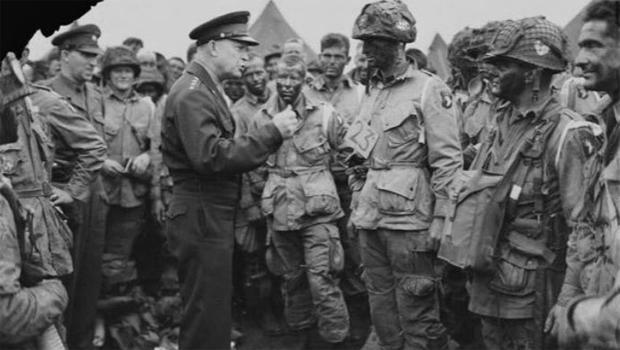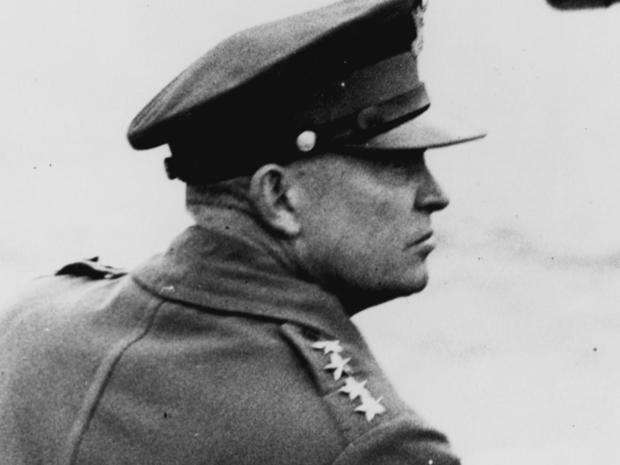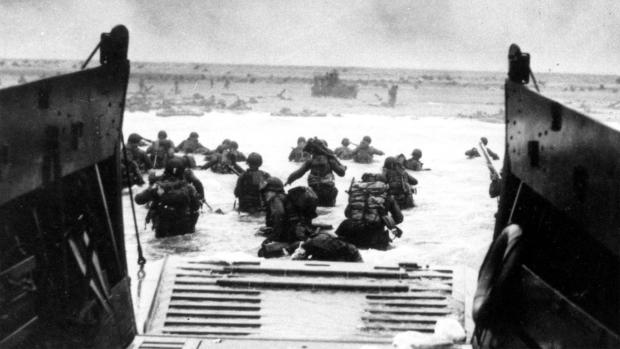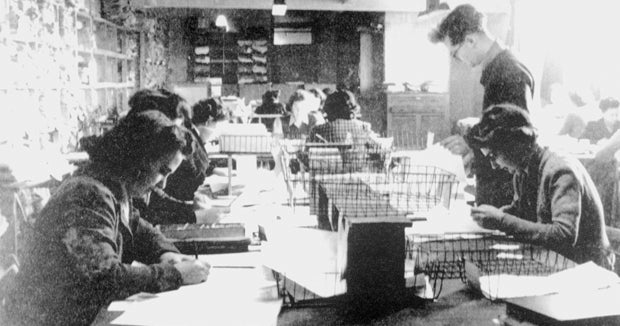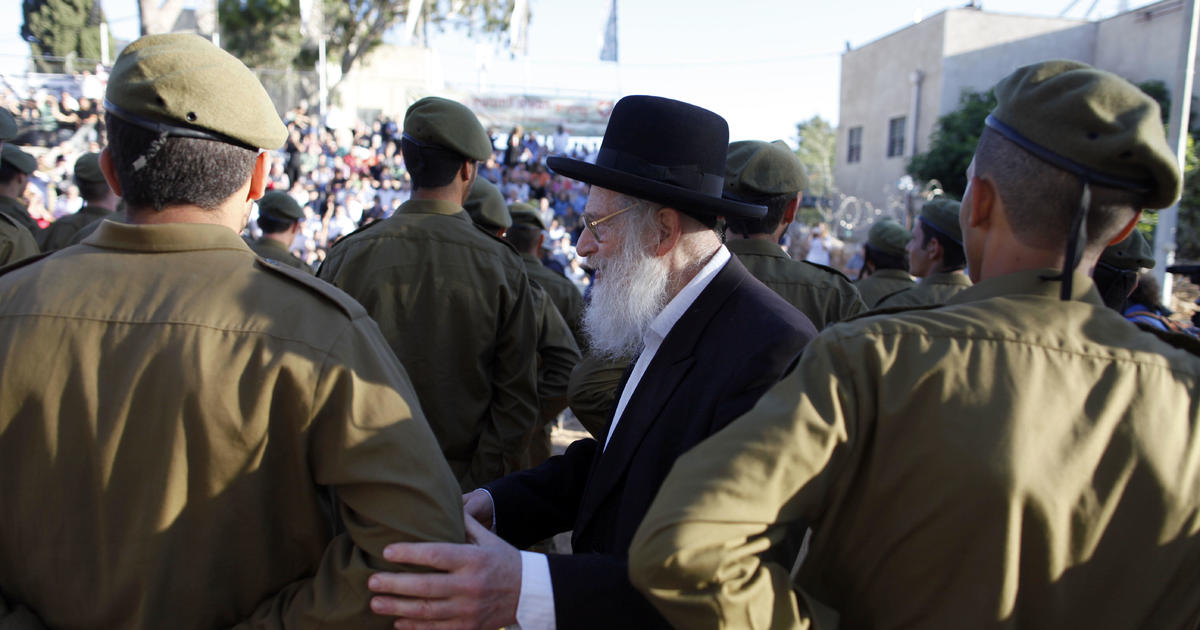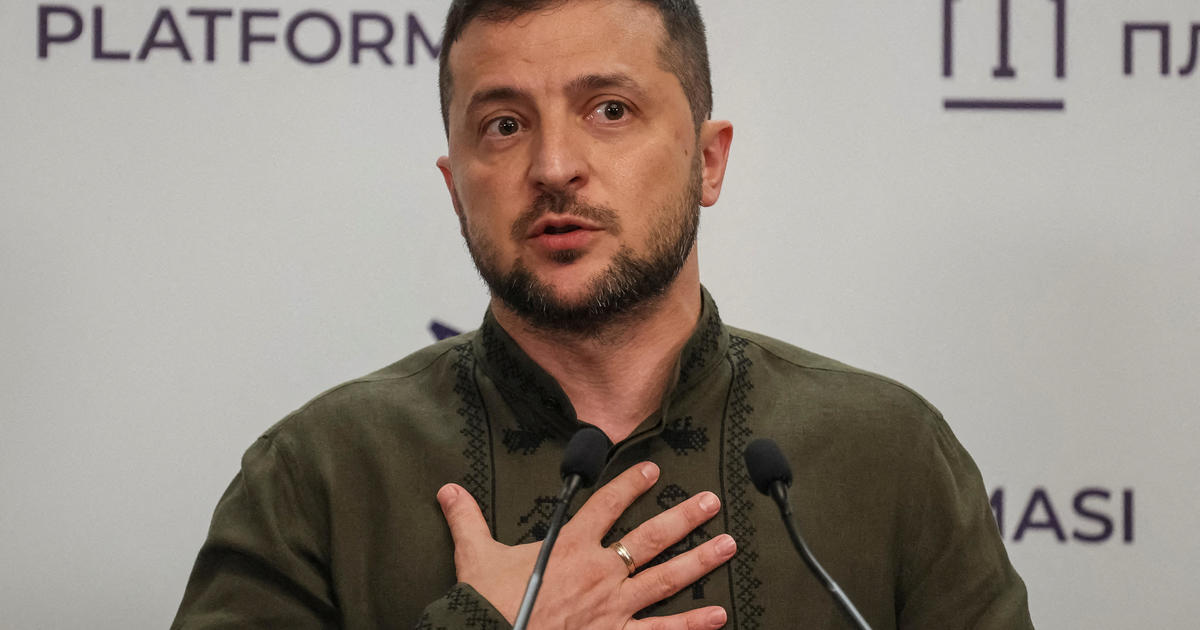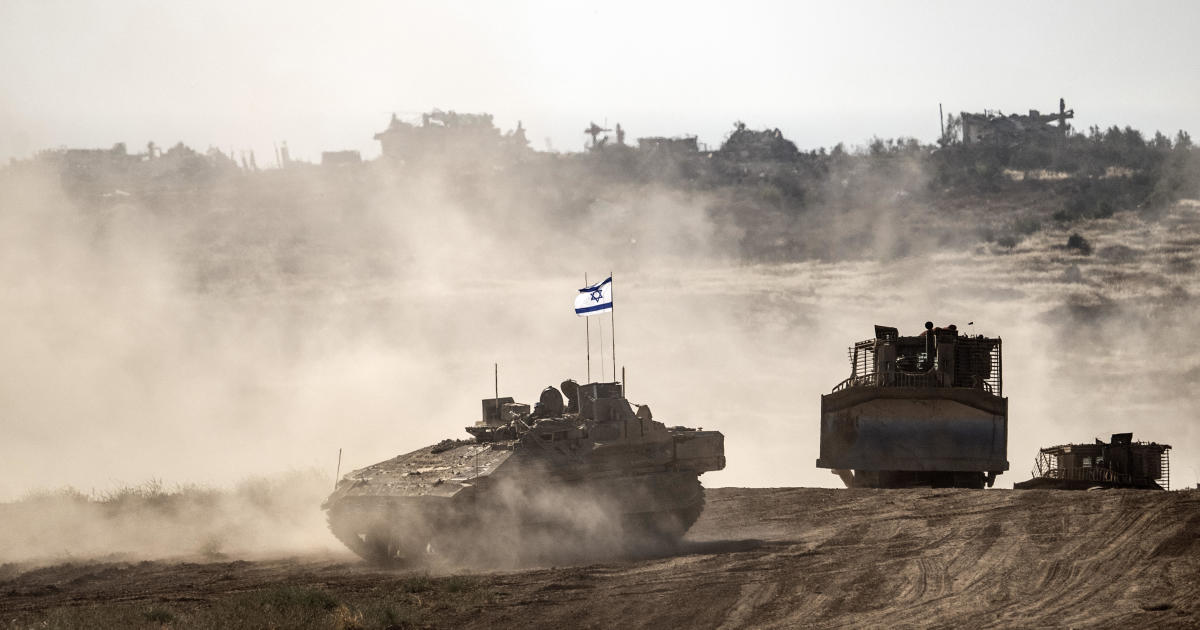His grandfather's war: David Eisenhower on the general and D-Day
On the eve of D-Day, Gen. Dwight David Eisenhower paid a visit to the Airborne Infantry – a commander about to send warriors into battle. His presence, according to his grandson, David, said to them, "'Whatever happens tonight ... your sacrifice will be meaningful.' He loved these soldiers and he just wanted to see them."
David Eisenhower's grandfather commanded the greatest military operation of history's most terrible war. David grew up on the Eisenhower farm at Gettysburg, just over the hill from the scene of the greatest battle of the American Civil War. As president, Ike named the presidential retreat Camp David after his grandson.
They were close – but not close enough to share memories of D-Day. "He did not tell stories," David said. "In fact, I was discouraged from really raising the subject with him. World War II was not that safe a topic."
Because? "This would apply to Franklin Roosevelt and everybody in command responsibility. Winston Churchill as well. They said their piece in memoirs. They said it the way they wanted to say it. I think that they felt that every decision that they made in World War II carried consequences."
"So, the decisions were too consequential to be the subject of small talk?"
"That about distills it. The lives of literally millions in Europe were at stake."
David did not learn about D-Day sitting at his grandfather's knee; he learned about it researching and writing "Eisenhower at War," which was a finalist for the Pulitzer Prize. "He did not have a grandiose notion about his position in the war. He was part of something much larger than himself, and he understood that," he said.
President Roosevelt named Eisenhower commander of the operation code-named "Overlord" in December 1943, just six months before troops were supposed to go ashore at Normandy. There was a plan in place; but it was up to Ike to make sure the plan would actually work.
"The initial assault was three divisions, with two following up, meaning a five-division Overlord," David said. "He wanted 12 divisions. So, he expands the landing, doubles it. Better than doubles it."
Seven thousand ships and 2.8 million men were assembled for the invasion and the follow-on landings. There were too many decisions for any one man to make, but one decision only Ike could make: When to launch.
Martin asked, "What are the factors he has to consider in making that go/no-go decision?"
"The overriding factor is the safety of the landing, and that is a combination, it seems to me, of weather and the pace of German reinforcement," said David Eisenhower.
One of the few times Eisenhower ever spoke about D-Day was with Walter Cronkite on the 20th anniversary in 1964. They visited the command post, where Gen. Eisenhower had been given the weather forecast for June 5th. "We came down here hoping and praying that the weather would be sufficiently good," he recalled. Instead, he was given "the worst report you ever saw. He talked about gales hitting the Normandy beaches and winds up to the rate of 45 miles per hour, that kind of thing. The landing would be impossible."
But the forecast for June 6th promised a brief break. "I thought it was just the best of a bad bargain. I said, 'OK, we'll go,' and this room was emptied in two seconds."
David Eisenhower said, "The Germans really felt that the weather precluded landings. And they were right. But what they did not see was a window that had appeared in our forecasts of about 18 hours."
But winds were still high and visibility low, which made the paratroop drops behind the beaches high-risk.
Before Ike paid his famous visit to the 101st Airborne, he was warned they could suffer 80 percent casualties.
David Eisenhower said, "He understood that the risks were very high for these soldiers. This was a landing that had to succeed. You just do things when you know it has to work, that you would not otherwise do."
"If you're a German soldier, this is the landing that has to fail," said Martin.
"The Germans fought that way. This was a huge fight. This is not Germany giving up."
In the final hours before the invasion, Eisenhower wrote a letter, in the event the landings failed:
"The troops, the air and the Navy did all that bravery and devotion to duty could do. If any blame or fault attaches to the attempt it is mine alone."
Ike did not have to take the fall for D-Day, nor did he claim credit for its success when he visited Normandy for the last time with Walter Cronkite. "So, everything was going wrong that could go wrong. And finally some hearty soul just got up and said, 'Come on fellows. I'm sick of this and let's try it.' And we began to see these little individual acts of heroism."
The capture of Cherbourg three weeks after the first Normandy landing is called by military experts the greatest Allied strategic triumph of the war.
D-Day and the liberation of Europe made Eisenhower the most famous general in America, the so-called man on a white horse who rode to victory in the 1952 presidential election.
His smile made "I like Ike" a natural campaign slogan. But in 1952, speaking to an audience of World War II veterans, he was overcome with grief, and hid his face with a handkerchief. David Eisenhower said, "I'm sure one of the things that came to his mind right away was, 'Here I am, running for President, and 1,200 people died on Omaha Beach on June 6, 1944, and they're there, and I'm here.'"
Twelve hundred on Omaha Beach – 4,400 American and Allied dead all told on D-Day.
If any one person deserves the final word on D-Day, it is surely Dwight David Eisenhower. At the American Cemetery in St. Laurent, he told Cronkite, "I devoutly hope that we will never again have to see such scenes as these. We must find some way to work, and to gain an eternal peace for this world."
FROM THE ARCHIVES: Two decades after D-Day, former Gen. Dwight D. Eisenhower returned to Normandy, and talked with CBS News' Walter Cronkite about his experiences in June 1944.
For more info:
- "Eisenhower at War: 1943-1945" by David Eisenhower (Amazon), in eBook format, available via Amazon
- The 75th Anniversary of D-Day (National World War II Museum, New Orleans)
- National D-Day Memorial, Bedford, Va.
- Gen. Eisenhower's D-day statement to soldiers, sailor, and airmen of the Allied Expeditionary Force, 6/44 (National Archives)
- World War II: D-Day, The Invasion of Normandy (Eisenhower Presidential Library and Museum)
Story produced by Mary Walsh.
